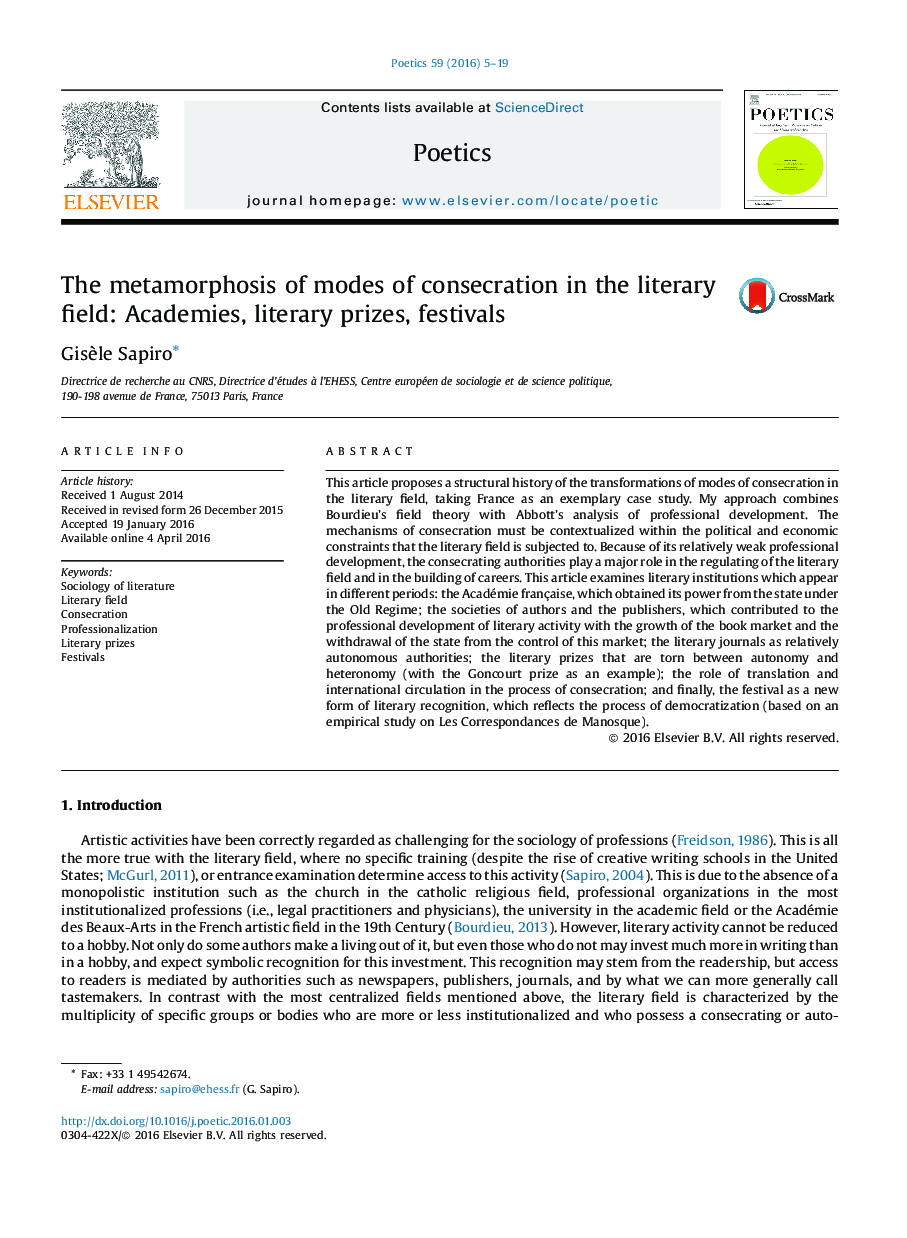| Article ID | Journal | Published Year | Pages | File Type |
|---|---|---|---|---|
| 5126732 | Poetics | 2016 | 15 Pages |
This article proposes a structural history of the transformations of modes of consecration in the literary field, taking France as an exemplary case study. My approach combines Bourdieu's field theory with Abbott's analysis of professional development. The mechanisms of consecration must be contextualized within the political and economic constraints that the literary field is subjected to. Because of its relatively weak professional development, the consecrating authorities play a major role in the regulating of the literary field and in the building of careers. This article examines literary institutions which appear in different periods: the Académie française, which obtained its power from the state under the Old Regime; the societies of authors and the publishers, which contributed to the professional development of literary activity with the growth of the book market and the withdrawal of the state from the control of this market; the literary journals as relatively autonomous authorities; the literary prizes that are torn between autonomy and heteronomy (with the Goncourt prize as an example); the role of translation and international circulation in the process of consecration; and finally, the festival as a new form of literary recognition, which reflects the process of democratization (based on an empirical study on Les Correspondances de Manosque).
